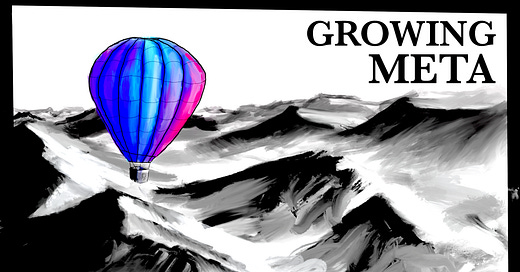
Hi all!
This week there’s more on policies and values.
You can call this behavioral economics, but values drive behavior. They are our inner compasses. Values are a product of what we want, what is right, and what is wrong.
Values are not principles.
When you need an external incentive (including social approval), it’s a value.
Example. When you travel to a new country whose society will take offense if you gaze in their eyes as you walk in the street, you make extra effort to mind your own business. This is a value (not a principle).
Values change depending on perceived reward and punishment. Principles do not. They are deeply instilled and environment-invariant.
We can change principles through education and upbringing, but that’s the long term strategy. Policy makers can mostly leverage values. Let’s see how a policy maker can think in systems of society and economy.
Policy makers designed policies without values.
Or like Christopher Alexander described it when he designed cities: like a tree. They mostly considered financial structuring, infrastructure and agents within the system like corporates and non-profits, but not the bilateral relation between humans and systems.
Humans create a lot of issues through their behavior. But they also are un-utilized agents of change. For example: some steal and others help the homeless. Some trash plastic, others recycle. Some clone ideas/things and others innovate. These behaviors are all driven by values. We can use these values to steer behavior and develop the system in a sustainable manner.
So how can public policy incorporate human values for sustainable development?
Let’s take a value: Resilience.
Resilience is how mentally strong you are against failure.
Thesis: If a system can raise the resilience of entrepreneurs, a system can raise the resilience of Small Medium Enterprises (SME)s, and as a consequence: the whole economy.
SMEs are crucial to any economy. They create a lot of jobs, create good circulation, they also contribute to the GDP by a large margin. Countries always try to support SMEs through the good times and the bad ones.
SMEs fail or succeed according to the qualifications and knowledge of its entrepreneurs. [1]
Resilient mentalities have a greater capacity to go through the hurdles that any SME could face: Unexpected market changes, customer relationships, challenges associated with scale and growth and other challenges created by out-of-the-blue events like COVID19 or black swan events like the 2008 crash.
Entrepreneurs can gain resilience if they have worked in uncertain environments, have had direct experience with adversity and worked in informal organization settings. [2]
Countries can improve their economies if they increase the value of resilience in their societies.
One: Using social norms, we can get kids, young adults and entrepreneurs to adopt resilience if as a society we dignify resilience and discourage fragility. That could be through employing media in glorifying resilient individuals and normalizing failure.
Two: Instead of equally allocating resources at SMEs, policy makers could reward entrepreneurs and business owners who have exhibit resilience in retrospect.
There could be other ways, but this is the most I could write for now and my son wants me to stop writing to drop him at his friends.
Did you get any ideas that could inspire policy makers to utilize value in their policies? Share them with us at @Values20Group!
p.s. Nassim Taleb introduces an even better value: anti-fragility. Which is resilience that learns from all challenges. How can policies be designed to invoke and garden the anti-fragility of a society? An exciting prospect.
Find me on Twitter @NajlaAlariefy.
[1] Mayr, Stefan, et al. "Entrepreneur characteristics and differences in reasons for business failure: evidence from bankrupt Austrian SMEs." Journal of Small Business & Entrepreneurship (2020): 1-20.
[2] Branicki, Layla Jayne, Bridgette Sullivan-Taylor, and Sarah Rachael Livschitz. "How entrepreneurial resilience generates resilient SMEs." International Journal of Entrepreneurial Behavior & Research (2018).


